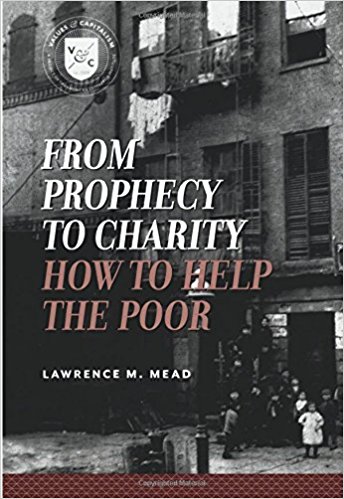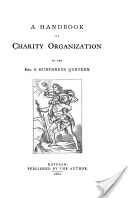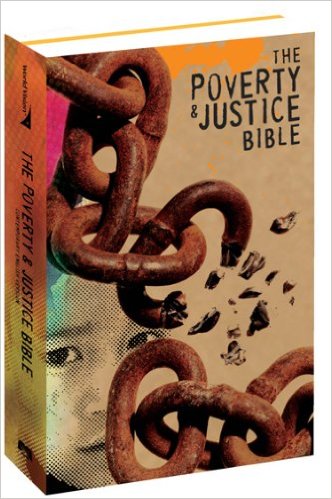The Bible And The Poor

“Ordinary people sense in their bones both that helping the poor is a priority, and also that the poor must help themselves. Some will ask, how can we do both? If we help the poor, they are not self-reliant, and if they are self-reliant we do not help them. But the two priorities conflict only in political ideology. In local anti-poverty efforts, it is quite possible to combine them.” — Lawrence Mead [i]
There is a lot of guilt in America about not doing enough for the poor. Many of us feel guilty when we hear about a child in poverty or read reports about the homeless or downtrodden. And many people feel particularly guilty because they know the Bible instructs them to help the poor.
Pastor James Forbes summed it up best when he said, “Nobody gets to heaven without a letter of reference from the poor.” [ii] But we also know that the poor must help themselves. How do we balance these contrasting thoughts?
What Does The Bible Say About The Poor?
One day I thought I’d study the Bible from the perspective of the poor and downtrodden and see what I could learn. So I purchased The Poverty & Justice Bible. It was the entire Bible, New and Old Testaments, highlighted with key passages, as described in the foreword by the Rev. Dr. James Lawson: “This is a wonderful Bible in a contemporary rendering, with pertinent passages on poverty and justice highlighted.” [iii]
Highlighted it was. Nearly every page had something highlighted; 33 highlights in Genesis alone. It was overwhelming. Overlying it all was the push that we should do more. In the middle of the Bible was a section entitled “The Core,” written by the publishers. It included the following: “We are our brothers’ and sisters’ keepers, and we love them by serving them. God calls us into community and to be in relationship with him and with one another.” [iv]
Love them by serving them. I got that point vividly as I read the highlighted sections. But I did not have as vivid a feel for how to help the poor help themselves. Does serving the poor mean helping them to help themselves?
Unconditional Giving on a Mission Trip
My dilemma came to a head on a mission trip to West Virginia with the youth group from my church. I was a counselor and chaperone of high school kids on a one-week mission trip to repair houses in the Appalachian Mountains. We had taken a bus load of high school students broken up into teams of five students and two adults. We were assigned to our project and introduced to the house’s inhabitants. Our job was to replace a worn-out porch that led to the entrance to their trailer home. Four generations lived in the small trailer. A great-grandmother was cared for by an 18-year-old mother, who also looked after her two-year-old daughter. The middle-aged mom worked full-time as a nurse’s assistant.

We were there for a week building the new porch. For five days, we worked outside in the heat; all the while, the inhabitants stayed inside and watched TV. The place was a mess both inside and out. Not just messy but unhealthful, with spoiled food in the yard a dirty house, and stuff piled from floor to ceiling. The baby crawled on the floor covered with filth. I know I would not want my kids crawling on such a dirty carpet, and it bothered me. It disturbed me even more at the end of the week when the mother had to take the child to the emergency room with a bad case of hives.
Our volunteers had plenty of expertise to address the health issues and mentor the inhabitants, but that wasn’t our job. Those running the charity had made it clear to us that our job was to work on the house and not comment on the household or its inhabitants. They asked that we not involve ourselves in that way. Our job was to build the porch. As I witnessed serious problems that could be remedied, I wanted to get more involved. But the staff of the charity held firm despite my protests. So I let it go.
Unconditional Giving Didn’t Feel Right
One evening late in the week, we had a group discussion about compassion and giving with our kids and the charity’s staff. The kids raised lots of questions and didn’t understand why they were outside working while the family was inside watching TV. I couldn’t explain it to them because I felt the same way. But the charity leaders explained that our purpose was to serve and be compassionate with no expectations. They explained that that was the highest order of compassion. Don’t judge — give. As simple as that.
But I never felt good about it, and I knew many of our kids didn’t as well. The executives running the charity were educated professionals, and that was their explanation of what the Bible says is our calling. They questioned our compassion when we raised the issue. My compassion was strong but misunderstood. I’d given a whole week of my time, worked my butt off, spent my own money, and after our week in the hot sun, a new sturdy porch was attached to the trailer home. We showed our kids how to be compassionate. They witnessed poverty up close, which many had never seen before. Mission accomplished, right?
But I couldn’t get the household and that two-year-old covered with hives out of my mind. Did the Bible say to put the porch ahead of the health of a two-year-old? Perhaps that wasn’t the right question, but that is how I felt about it and still do. Was it none of my business? Is that really the definition of compassion?
A Revelation About the Bible and the Poor

After returning home, I ran across a small book on poverty by Lawrence Mead. Mead is a professor at New York University and has worked and written about poverty for many years. His book, From Prophecy to Charity, is not much bigger than a pamphlet but was inspirational. It had a chapter on poverty and the Bible, which shed some light on my dilemma. Here are some of the quotes I found enlightening [v]:
“In the New Testament, Like the Old, helping the poor is a priority, but helping means primarily to restore the poor to community rather than simply to subside or liberate them. The community is based on mutual expectations about good behavior.”
“Assistance is not a substitute for engagement. The answer to poverty is not redistribution but the rebuilding of relationships with the poor where both sides give and receive.”
“Properly understood, the biblical commandment is not to spend more or less on the poor. Rather it is to do what they most require.”
We Weren’t Helping the Poor to Help Themselves
Based on Mead’s interpretation, we missed the most important thing on our mission trip. We did not make the poor women in that household a part of our community. We had lunch with them each day, and we were nice to each other, but we didn’t do what they most required. I wish the female adult volunteer had gone into the house and passed along all the wisdom she had — like it was her house and her child.
We could have shared housecleaning and health tips. Heck, I’d have brought my vacuum. For part of the time, the 18-year-old should have helped us build the porch. I would have liked to work with her. Perhaps I could have taught her something, and I would have gotten to know her much better. I bet the women of that household would have taught us some things, too. They would have taught us how to live without all the material possessions we think we need in our lives.
But that whole human side of things, all that shared community was lost in the instructions to deliver a porch with minimal interaction with the occupants. Our job was to deliver compassion with no expectations of any kind. That was explained as the highest level of compassion. “Serve and ask nothing in return” is what they said was our charge. They said it is what the Bible instructs.
The Bible and the Poor – Work and Labor
What comes from many of our churches is a calling to serve with no expectations in return. Much of it seems to be Scripture-based. It is the controversial aspect of compassion versus effective compassion. Contrast that to A Handbook of Charity Organization written in 1882:

“The fact is, the trouble does not lie in the Church, still less in Christianity, but in ourselves — not in the teaching of the Church, for the Church has never taught her children, as a religious duty, or even as an act of grace, to give, asking no questions — the trouble lies in the natural tendency of man to shirk a plain and Scriptural, ay, and arduous duty, and to adopt easy, unchurchly and irrational methods [vi].”
The problem is even more prevalent when the debate arises about work and labor expected from the poor. The word used over 100 years ago, “idleness,” is almost taboo to talk about today. So is the discussion that many people receiving aid have become comfortable in that capacity. Too often, addressing this issue is thought of as inappropriate. Yet I know that without a base level of life skills, including a work ethic, the poor will never get out of poverty. Life skills and obtaining a work ethic are not easy to learn, and most of us had help and motivation to succeed. Why do we refuse to help those in poverty achieve it? Why are we afraid even to address it? We have to address it if we want the poor to help themselves.
With No Expectations of the Poor, We Provide No Motivation for the Poor
The lack of expectations and interaction with the poor was the heart of my dismay on the mission trip. The kids didn’t want to be in the hot sun all day (truth be told, neither did I). We had our kids outside working for five days. The 18-year-old in the house watched TV all day. Her work ethic was not what it should be. We taught our kids how to stay hydrated, use tools, work as a team, and take pride in their work. It was only a week, but they were proud of their accomplishments.
I worried about what our presence was indirectly teaching the 18-year-old in the trailer. Did she learn she is not expected to do such work or is incapable of such work? Or perhaps she was happy to have a new porch and pleased to have avoided the work? Or maybe those thoughts never entered her mind. Regardless, we missed an opportunity for an encounter between the middle class with the poverty class. We did not help the poor to help themselves. Instead, we delivered a very strong porch, which I think will outlast the trailer.
The Bible Says No Work, No Food; Why Then Has 2 Thessalonians Vanished?
Here is how the Handbook of Charity Organization” addresses labor and work:
“Is it, we ask, a very hard-headed thing for the public to require an equivalent of labor, from those who are able to give it, in return for the relief which they receive? Is it unchristian? Is it not in the sweat of his brow that man is to eat his bread? Is not the Commandment, ‘Six days shalt thou labor?’ And does not the apostle lay it down as a law, that ‘if any will not work, neither shall he eat?’ And what gives these words peculiar force in this connection, is the fact that when St. Paul penned this command, he was actually speaking of charitable relief and forbids the churches to assist the will-fully idle from the contributions of the faithful [vii].”

The reference regarding the Apostle Paul comes from 2 Thessalonians 3:6–15. I wondered what The Poverty & Justice Bible did with that reference. What I found shocked me. It was not highlighted – it was skipped as if it did not exist. That amazed me. Two other passages of 2 Thessalonians were highlighted, and the whole chapter is only two pages long.
This is the heart of the problem we face today. The poor will never escape poverty without life skills and a work ethic. Period. It won’t happen. Yet addressing this fact is almost always ignored — pushed aside by political correctness and fear. I do not want to imply that all those in poverty are lazy. Far from it. Some in poverty work far harder than many in the middle class, and they often work at back-breaking jobs. The Poverty & Justice Bible argues that we must find a way to increase earnings for these folks. I agree. But that does not mean that all those in poverty have good life skills and a strong work ethic. When we find idleness is a problem, we should not be afraid to address it.
The Middle-Class Kids Practiced A Work Ethic – The Poor Kid Did Not
For a solid week in West Virginia, I worked alongside the five teenagers on my team. We sweated together, learned together, and talked together. During the week, the 18-year-old in the house remained glued to her TV. She had no male in her family, no one working with her directly. What did we communicate to her indirectly — that the kids I bought, our kids, were worth my time, but she was not? What if we had arranged for her to work with us for a couple of hours each day? Or perhaps she could have worked inside the home with some of our team.
Maybe she should have taught our kids how to care for her grandmother and two-year-old. I wish we would have been in a position to treat her as one of us, learn her skills, encourage her to work hard, and teach her as much as possible. That is what I was doing with the 18-year-old kids we brought. But instead, her life went on as before; no cultural encounter occurred.
The Solution to the Problem is “Something for Something”
I think there is an easy way to ensure we help the poor to help themselves. We should get “something for something.” It doesn’t need to be fully reciprocal. The value of something given doesn’t have to equal the value of something received.

The something given can be money or things; the something received can be an interaction of some kind. The something gained can be further education or training. It could be volunteering at charities, schools, or churches. For example, It could be helping kids with homework, reading to toddlers, cleaning up parks, or supporting elders. The time constraints of those working full time should be respected. But there are still simple things they could do that are valuable to the community; do not put a job at risk and help achieve a cultural encounter. The idea of something for something is to help us establish community together while the individual learns invaluable life skills. The poor have much to offer our communities, and our communities have many needs.
On our mission trip, the quid pro quo could have been a new porch in exchange for participating in the construction and teaching our kids about caring for a grandmother and raising a two-year-old. That would have caused a meaningful encounter where everybody learned and respected each other.
Conclusion
The poor want to help themselves and want to contribute to the communities where they live. If we do it right, we can accomplish that together. Something for something is the way to do it.
This blog supports the Ultimate Guide on How to Help the Poor – Be Hard Headed
[i] Mead, Lawrence. 2001. “From Prophecy to Charity, How to Help the Poor.” AEI Press. Page 63.
[ii] Ibid., 67.
[iii] The Poverty & Justice Bible, 1995, Contemporary English Version, American Bible Society, New York, Foreword.
[iv] Ibid., The Core, 7.
[v] Mead. Page 62
[vi] Gurteen, Stephen Humphreys. 1882. “A Handbook on Charity Organization.” Bibliolife, LLC. Page 29 – 30.
